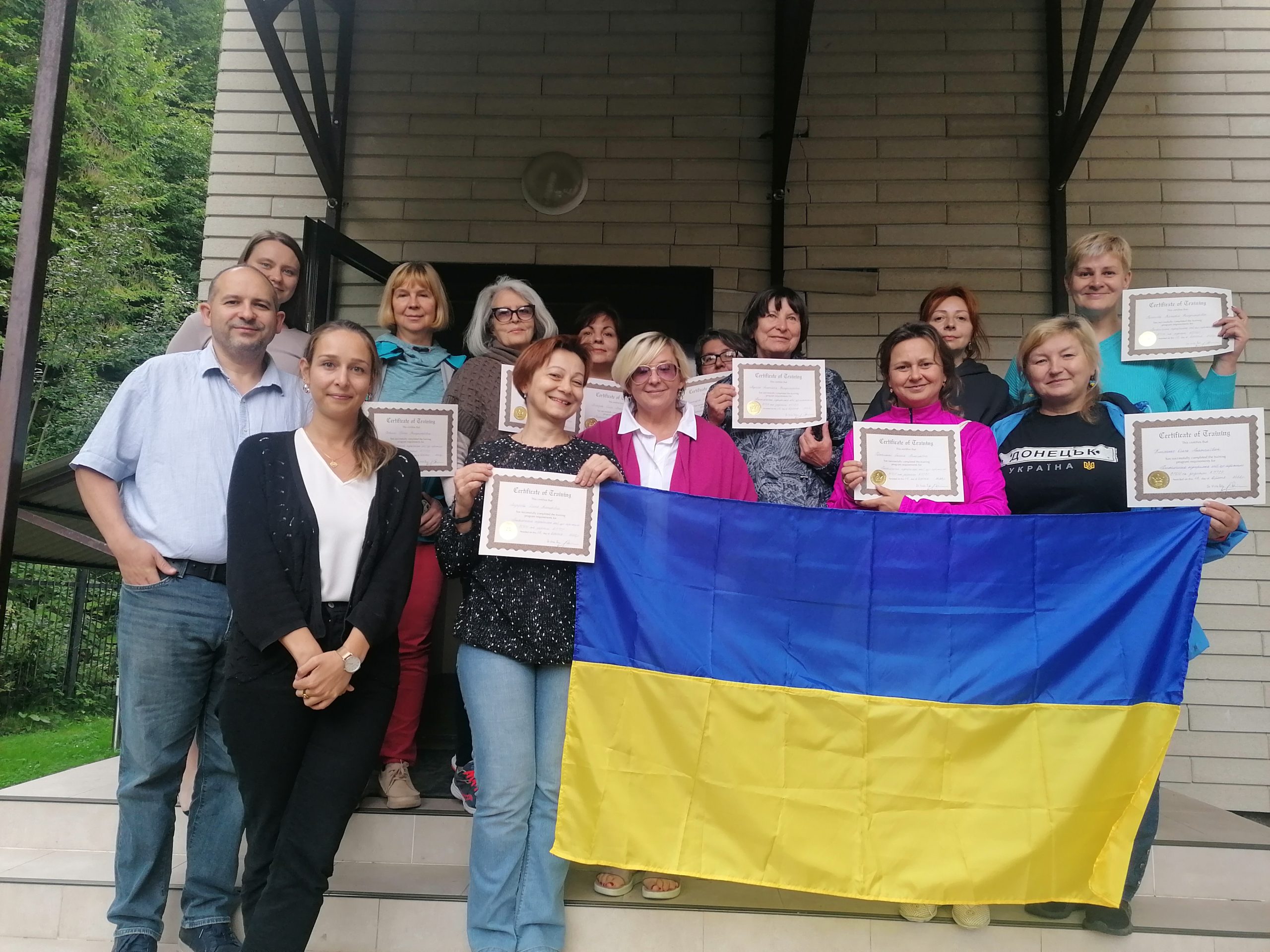Ukraine

Background of the conflict and use of sexual violence
Ukraine has been in armed conflict since the annexation of Crimea by the Russian Federation in early 2014. In response to the annexation, pro-Russian separatists in the Donbas region in Eastern Ukraine supported by the Russian government started an insurgence. As the separatists seized various government buildings and proclaimed the Donetsk People’s Republic and Luhansk People’s Republic as independent territories, Ukrainian forces fought back to retake the areas held by the separatists. Although a peace agreement was signed in 2015 between Russia and Ukraine, the agreement was never fully implemented leading to the continuation of a violent conflict between Ukraine and Russian proxies.

In the self-declared independent territories of Donetsk and Luhansk, sexual violence has been used systematically since 2014 against women and men who were held as captives and hostages in illegal detention facilities and checkpoints. Sexual violence has primarily been used to induce civilians to leave the territory, as a form of humiliation or punishment, as a means of extortion to force victims to give up property or other resources, and as a form of torture to force victims to make confessions or give information. Reports include various forms of sexual violence, including rape and threat of rape; forced prostitution; torture with damage to the genitalia, or threats to commit such acts; attempts or threats of castration; threats of sexual violence against relatives; sexual harassment; forced nudity; and searches by individuals of the opposite sex, including full or partial exposure.

In February 2022 the conflict escalated as Russia conducted a full-scale invasion of Ukraine. The invasion has been characterised by indiscriminate attacks on civilians and civilian infrastructure, unlawful and arbitrary detention, torture, extrajudicial killings, forced disappearances, and widespread sexual violence in the occupied territories. Russian troops are reported to target women and girls, but also men and boys, with sexual violence, with the UN Independent International Commission of Inquiry on Ukraine finding that victims include children as young as 4 and adults older than 80. Many in the international community including the UN special representative on sexual violence Pramilla Patten have proclaimed the sexual violence by Russia in the Ukrainian conflict as a weapon of war.

Response and Support for Survivors
The international response to Russia’s invasion in relation to CRSV has been ample. The UN Security Council passed resolutions protecting civilians from CRSV, while national and international humanitarian actors have established structures for the provision of humanitarian assistance, monitored and reported on CRSV incidents and launched awareness campaigns advocating for action to prevent and respond to these crimes.
Despite awareness of the occurrence of conflict related sexual violence in Ukraine, relatively few survivors have identified themselves to authorities due to stigma and fear of reprisals. Furthermore, survivors who do report their experiences face multiple challenges in accessing appropriate support services, claiming their human rights and demanding accountability for grave human rights violations. Nevertheless, survivors have decided to stand up to advocate for increased awareness of conflict-related sexual violence and access to services, participate in the development and implementation of policy, and take a proactive role in supporting other survivors.

National Network
SEMA Ukraine
In February 2019 twenty Ukrainian women who survived captivity during the conflict in the Donbas region united to defend their rights and the rights of others that went through similar horrors. Since then, the Ukrainian survivors’ network has been working hard to achieve its aims to raise awareness of conflict-related sexual violence among survivors and government decision-makers, establish a viable peace, and gain support.
Known as the Ukrainian Network of Women Affected by Violence (SEMA Ukraine), the network is composed of members throughout Ukraine with the aim to play a key role in the political arena in Ukraine raising general awareness and supporting the emotional recovery of other survivors. The network has underscored the importance of solidarity among women to break the silence and campaign for their rights.

Members of SEMA Ukraine support each other and their peers who have suffered atrocities at the hands of the occupiers. They reach out to women in the de-occupied territories, accept new members, and communicate with local communities. The network furthermore conducts educational activities, including a whole series of trainings for military personnel and victims of wartime sexual violence.

SEMA Ukraine wants the whole world to learn about what they had to go through. For this purpose, its members regularly participate in international congresses and forums dedicated to the fight against sexual and gender based violence. Over the past years, SEMA Ukraine members have participated in various advocacy opportunities in e.g. the USA, the UK, Kosovo, and Bosnia to meet with representatives of the UN, EU, ambassadors, and more. Furthermore, the network has actively engaged with journalists and the media leading to a large number of publications calling attention to SEMA Ukraine and their cause.

In 2024, SEMA Ukraine conducted a learning exchange with a newly formed network of male survivors of torture as a result of the aggression of the russian federation. This started cooperation in their advocacy activities. The most notable examples of which were joint participation in the International Conference “Restoration of the conflict-related sexual violence survivors’ rights: an element of peace and world security” (March, 2024) and in the International Forum: “Post-traumatic growth of conflict-related sexual violence survivors in conditions of a long war – Let’s Act, Sisters!” (July, 2024).
Contact information
Website:https://semaukraine.org.ua/?fbclid=IwAR3rT3USOXOlEQduZyeQ3HUaEr-
YMsbH6RDMmmA5R_mm9AtTZY4DClqmApI
Email address: info@semaukraine.org.ua
Phone number: (099) 999 99 99
Facebook: https://www.facebook.com/profile.php?id=100093017440333
Instagram: https://www.instagram.com/sema_ukraine_/